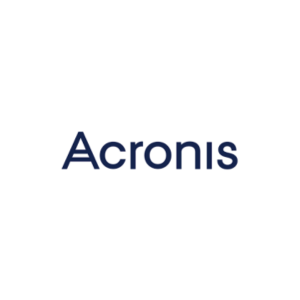Insights
INSIGHTS
All Topics
Exploring changes to annual accounts
07 Jul 2022by Joe Lepper
We look at changes to the amount of information charities will be expected to provide when filing their annual accounts
The Charity Commission has recently announced the first major overhaul for four years of the information it expects charities to provide to the regulator in their annual accounts. The changes will apply to all eligible charities, which have an income of more than £10,000 a year.
Already charities are asked a series of questions around their income, spending, and governmental contracts. Trustee payments, staff salary bands, and income from outside the UK are among other areas already covered.
But the Commission wants to gather much more information in the future, especially around charities’ attitude to financial risks, diversity of income. and ensuring supporters and donors are getting value for money when they give to good causes.
Under the plans the baseline set of questions to be answered by all charities is to double from 16 to 32. Meanwhile, the maximum number of questions that charities will be asked by the regulator is rising, from 36 to 52.
Clearly charities will need to ensure they are able to provide much more information to the Charity Commission. The proposed changes are being considered by the regulator in 2022 and if approved will apply to charities’ accounts starting on or after 1 January 2023.
Here we outline what the changes entail.
Funding and risk
New questions are being proposed looking in depth at charity’s income streams, focusing on diversity of funding and money gained through corporate or individual donors.
These are being inserted to offer a greater examination of risk, says the regulator. Questions on overall income and spending will be retained as well.
To ensure the extra questions are not too time-consuming for charities, simple yes/no answers will be required, rather than specific values.
These new questions include whether a charity has a “heavy reliance” of more than 70% on one income stream.
In addition, charities will be asked if they have a more than 25% reliance on corporate donations, individual donations, or gifts from a single trust or donations.
Charities will also be asked if they rely on donations from connected third parties, as this could “indicate a conflict of interest”.
“We will use the data to identify trends and provide proactive support where we identify charities that may be at risk,” says the proposed revisions.
Trustee payments
Another new question is on payments to trustees. Currently this is restricted to asking only about payments and benefits trustees have received.
The regulator will now ask specifically “whether trustees were paid for being a trustee” as well as paid for any role within the charity’s trading subsidiaries or connected organisations. Once again, a yes/no responses are being proposed.
This is being asked as the government is set to change rules to allow trustees to be paid for goods and services.
“This question will give us accurate information on the extent of trustee payments and ensure we can monitor potential risks, adds the regulator.
“It should help to provide assurance that trustees understand the rules and risks around personal benefit and trustee payments and can recognise and manage conflicts of interest.”
Grant making responsibilities
Elsewhere, a new question has been added to assess whether charities are principally grant makers and what proportion of their grants are made to individuals and other charities.
This aims to help reassure the Commission that charities are financially stable when giving grants to reduce risk to beneficiaries.
In addition, further information about grants to other charities and connected parties can help ensure conflicts of interest are being managed.
Location, location, location
In terms of location the regulator currently only holds information about charities addresses when they register. New questions will ask about al locations where the charity operates.
This aims to see if there are any regional issues around risk, for example “localised patterns of complaints”.
More data on charities’ location will also help identify gaps in provision. “This kind of information would have been useful in the pandemic,” adds the regulator.
Campaign for diversity reporting
However, a notable issue not covered in the proposed changes is equality, diversity and inclusion (EDI). This is despite a 2017 Charity Commission report that recommended reporting on board diversity.
A campaign, spearheaded by the charity Money4You has launched, backed by among others Charities Aid Foundation, CharitySoWhite and New Philanthropy Capital, calling for the regulator to require charities to report on diversity, particularly in leadership roles.
“We’re proposing that all organisations which file an annual return to the Charity Commission should be required to include standardised data tables on the diversity of their board and senior leadership,” states their open letter to Charity Commission Chief Executive Helen Stephenson.
Useful financial reporting tools
There is a raft of digital financial reporting tools available to charities to help track much of the information that is being increasingly sought after by regulators.
This includes features around budgeting and preparing board reports through Calxa, which is offering a discounted subscription via the Charity Digital Exchange. Other tools include the dashboard and analytics focused Tableau.
Joe Lepper
More on this topic
Recommended Products
04 Jan 2025by Aidan Paterson
The best bank accounts for charities
03 Jan 2025by Ioan Marc Jones
A guide to mental health awareness
03 Jan 2025by Ioan Marc Jones
Climate change facts you need to know in 2025
03 Jan 2025by Ioan Marc Jones
An A-Z glossary of climate change terms and definitions
Our Events
Charity Digital Academy
Our courses aim, in just three hours, to enhance soft skills and hard skills, boost your knowledge of finance and artificial intelligence, and supercharge your digital capabilities. Check out some of the incredible options by clicking here.



















